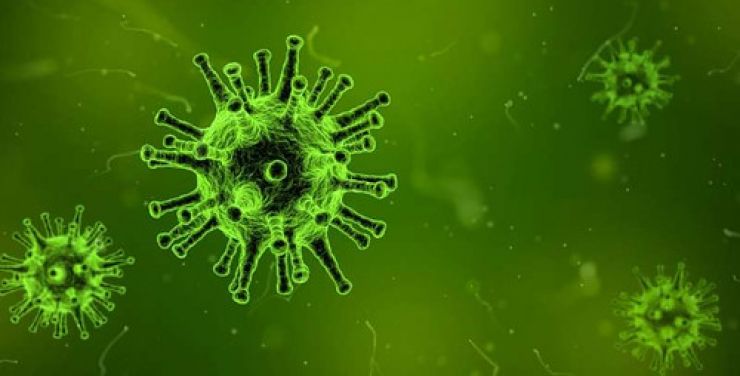Coronavirus – Part 2

Last month we published an article by our resident bioethics expert, Dr John Ling, on the emerging Covid-19 vaccines. With events moving so quickly, he has now written a follow-up piece addressing, amongst other things, the controversy over the safety (or otherwise) of the jab as it begins its rollout across the UK:
Coronavirus – Part 2 (December 2020)
The long-awaited news
So, on Wednesday 2 December, the UK became the first nation in the world to approve the Pfizer-BioNTech coronavirus vaccine for medical use. The UK’s Medicines and Healthcare products Regulatory Agency (MHRA), the medicines watchdog, had given it the thumbs up and granted it temporary authorisation. The roll-out could begin. Indeed, a lorry containing 800,000 doses of the vaccine was soon on its way from Pfizer’s production plant in Belgium. V-day was almost here – within a week vulnerable citizens should be getting the jab. The news was greeted with some cringe-worthy headlines, such as ‘what a shot in the arm for Britain’, ‘the candle of hope is now burning brighter’ and ‘a day to remember, frankly, in a year to forget’. Apparently, the organisers of Wimbledon, Royal Ascot and the British Grand Prix have stepped up plans to host capacity crowds next summer – what a game-changer this vaccine is!
But let no-one forget the serious science and those steadfast scientists behind this medical triumph, namely a viable vaccine in 10 months instead of the usual 10 years. Several researchers should be named in the Queen’s New Year’s honours list. They deserve our profound gratitude.
A brief history of vaccination
Vaccines are a brilliant piece of medical weaponry. Globally they save some 2 to 3 million lives each year from a range of diseases, such as diphtheria, tetanus, influenza, measles, mumps and rubella.
Vaccines have a fascinating history: The main man here is Edward Jenner, an English country doctor with a novel notion. He was the eighth of nine children born to Stephen Jenner, the vicar of Berkeley in Gloucester, and his wife. During his medical practice Dr Jenner observed that milkmaids were generally immune to smallpox. Jenner’s hypothesis was that the pus from their mild cowpox infections, an occupational hazard, protected them from the virulent smallpox.
On 14 May 1796, Jenner tested his hypothesis by inoculating James Phipps, the eight-year-old son of his gardener. He scraped cowpox pus from the hands of Sarah Nelmes, who had caught it from a cow named Blossom. Jenner inoculated Phipps in both arms that day. A fever developed but no infection and no subsequent disease even when James was injected with smallpox material. Bingo! Vaccination was established, so called because ‘vacca’ is Latin for cow. And such has been the success of vaccination that in 1979, smallpox was declared to be eradicated across the entire world. Nice historical digression, wonderful treatment.
Should we be sceptical about vaccines?
Yes, a healthy dose of scepticism, rather than destructive cynicism, is appropriate whenever scientists, politicians and other so-called ‘experts’ speak. Medicine is always experimental with associated risks – even a seemingly safe drug like paracetamol can be dangerous for some people. And experimental science is based on the null hypothesis – a claim is not true until demonstrated otherwise. So 1 Thessalonians 5:21 rings out, ‘Test everything. Hold on to the good.’
The Big Three
Of the 60 or so vaccines in phase 3 trials around the world, three are currently favoured by the UK government. They are the Pfizer-BioNTech (US-German) vaccine, with two others from Moderna (USA) and Oxford-AstraZeneca (UK) waiting in the wings. In common with all vaccines, they work basically by priming a person’s immune system to recognise and fight viral and bacterial infections. These big three are therefore regarded as the long-term answers (in contrast to the temporariness of lockdowns) to controlling SARS-CoV-2, the virus that causes Covid-19, the disease. They have all come through rigorously-conducted clinical trials in phase 3 involving thousands of human volunteers.
There are several classes of vaccines, but the big three consist of two types. First, there are messenger RNA (mRNA) vaccines. These take a portion of the genetic code of the spike protein, those knobbly bits on the virus, and when injected into human cells they produce spike protein to train the body to produce Covid-19 antibodies. This mRNA technology is smart, but as yet untried. It is the basis of both the Pfizer-BioNTech and the Moderna vaccines.
Second, there are adenovirus vaccines. The genetic code of the spike protein is added to a different, benign virus. In the case of the Oxford-AstraZeneca vaccine, the latter is a harmless chimpanzee cold virus known as ChAdOx1. Again, when injected into humans, the vaccine cells prime the body to produce Covid-19 antibodies.
As more vaccines come on stream other types, such as protein subunit and inactivated virus vaccines, will become more familiar as will manufacturers’ names like Novavax, Valneva, SinoPharm and Sputnik V. The last two originated in China and Russia (of course!), where the authorities have pressed ahead with vaccinations without waiting for the results from large-scale efficiency trials and subsequent approval.
Besides the differing modus operandi of the big three, other of their properties also vary. For example, in phase 3 trials, the Pfizer-BioNTech and Moderna vaccines were reported to be 95% efficient, while the Oxford-AstraZeneca product performed between only 62 and 90%. The Pfizer-BioNTech vaccine must be stored at -70⁰C and is stable for only 5 days at 4⁰C, while the Moderna product can be stored at -20⁰C for up to 6 months. The Oxford-AstraZeneca vaccine retains long-term stability at 4⁰C, namely within a domestic refrigerator, making it easier to handle. Also costs vary: The UK vaccine is cheapest at £3 per dose, followed by Pfizer-BioNTech’s at £15 and Moderna’s at £25.
Logistics of vaccinating
As wonderful as vaccines are, they need to be injected, from vial to deltoid. It will take years to vaccinate a significant proportion of the world’s inhabitants. Even the double-jabbing of much of the UK’s population is a massive undertaking. About 400 million doses of different vaccines have already been purchased by the UK government. The 40 million procured doses of the Pfizer-BioNTech vaccine will be sufficient for only about a third of UK citizens with the required two-shot regimen, administered 2 to 3 weeks apart.
How is this grand roll-out going to work? Of course, GPs will play a central role. And already midwives, dentists, airline staff, St John’s Ambulance volunteers and others have been recruited and trained in the vaccinator’s art. The precious vaccine has been distributed in unmarked vehicles and stored in guarded facilities across the UK. There have been reports of malicious hackers attempting to disrupt this supply chain.
Priority lists have been drawn up. First, it is planned that care home residents and their staff plus healthcare workers will receive the jab during early December. However, therein are considerable obstacles. First, the Pfizer-BioNTech vaccine is relatively unstable. It is packed in boxes with dry ice for transporting and then it requires -70⁰C freezers for intermediate storage in hospital laboratories and the like. The vaccine comes in vials of 5 doses, in large batches of either 975 or 4,875 vials per box. Once opened that vaccine can be stored in a normal refrigerator, but only for 5 days.
So the plan is to distribute the vaccine to hospitals first, and then GPs and city hubs in stadiums and conference centres. Within those sites healthcare workers can attend and be easily vaccinated. But care home residents present another problem – most cannot attend vaccination hubs and the stored vaccine cannot be readily divided and stored as small sets of 20 or so for convenient care home usage.
Some additional questions
Everyone has questions: What about known adverse side effects of Covid-19 vaccinations, such as injection site pain, fever and fatigue? Will they deter people from going for the second jab? What about having the first jab at a mass-vaccination site and the second at a GP’s surgery? Must both jabs use the same vaccine? Will vaccination dates be monitored? Will records be kept? If so, who keeps them? Will ‘vaccination passports’ be issued as proof of protection? And what about Covid-19 immunity over time? Will it be effective for a year, a decade, a lifetime? Or will re-vaccination be needed every year, like the flu vaccine? Although the big three seem to be effective in the prevention of symptomatic Covid-19 in people over 65, will these vaccines prevent transmission across all age groups? And children have not been tested in these phase 3 trials, so what about vaccinating them? And what happens if, and when, the coronavirus mutates, as other viruses often do? Will current vaccines still be effective? And when will the pharmaceutical companies improve their transparency? When will they produce detailed, peer-reviewed reports of their methods and results? At the moment we are subjected to scientific communication via press releases. Should vaccinations be compulsory for all, or for certain occupations? And if so, what about conscientious objection?
There are other questions, but, as yet, there are few answers principally because this anti-coronavirus enterprise is novel. Covid-19 is a new disease, these are new vaccines and this mass vaccination programme is a new undertaking. As the months pass more data, knowledge and insights will helpfully develop. The future looks (mostly) bright(er).
Conspiracy theories
Some people do not like vaccination. As well as those with vaccine hesitancy, they include the anti-vaxxers, misinformed sceptics and conspiracy theorists. Here is a sample of negative memes circulating on social media.
In 1998, The Lancet published a study by Dr Andrew Wakefield and 12 colleagues that purported to find a link between the measles mumps and rubella (MMR) vaccine and autism in children. However, the paper was later reported to be seriously flawed and fraudulent. It was subsequently retracted by The Lancet. Moreover, Wakefield lost his medical licence to practice. But the saga lead to a fear over vaccination safety, a fear that has persisted and become a totem of the anti-vaxxer community. The outcome was a significant reduction in vaccination rates and some countries, including the UK, lost their measles-free status.
Because the mRNA type of vaccines, including those from Pfizer-BioNTech and Moderna, contain a fragment of genetic material from the virus, some fear that this could alter the DNA makeup of vaccinated people. True, this m-RNA vaccine technology is new and never before used, but both biological science and the clinical trials give no support to this suggestion of infection or insertional mutagenesis. The mRNA is quickly degraded and leaves no residue.
How about this for another conspiracy theory? It claims that coronavirus vaccinations are a cover for implanting trackable microchips into people. And Bill Gates, the billionaire co-founder of Microsoft, is reckoned to be behind the scheme. Despite a lack of evidence a YouGov poll in May found that 28% of Americans believed this wild and crazy ploy to be true.
It is sad to report that some Christians consider that these Covid-19 vaccines are malevolent. Chief among them is the rapper and fashion designer, Kanye West. During an interview, published in a July edition of the New Musical Express (NME), he revealed his suspicions about a Covid-19 vaccine, calling it ‘the mark of the beast’ (Revelation 13:15-17). He claimed, ‘It’s so many of our children that are being vaccinated and paralyzed. So when they say the way we’re going to fix Covid is with a vaccine, I’m extremely cautious. That’s the mark of the beast. They want to put chips inside of us, they want to do all kinds of things, to make it where we can’t cross the gates of heaven.’ This is not only an example of a poor understanding of vaccination medicine, it is also dreadful theology. Yet it attracts a following.
And some ask, why get vaccinated against Covid-19 when the chances of dying from the virus are so remote? An anti-vaxxer’s campaign on social media has stated that the recovery rate from the disease is 99.97% and therefore getting Covid-19 is safer than having a vaccination. This claim is based on a statistical blunder. The 99.97% figure is erroneously referred to as the ‘recovery rate’. The truth is that about 99.0% of people who catch Covid-19 survive it. So around 100 in 10,000 will die from it. This is a far higher figure than the 3 in 10,000 as suggested on social media. And anyway, vaccination is about more than death rates. It is also about protecting the NHS from being overburdened with Covid-19 patients, as well as a personal and societal effort to protect others.
And there is the persistent allegation that Covid-19 vaccines are grown on foetal cells derived from abortions. This important issue was discussed more fully in Coronavirus – Part 1, which can be viewed here. The conclusion was that, yes, abortion is an evil, a grave injustice, and yes, some vaccines commonly use cellular material originally derived from historic abortions, known as immortalised epithelial cells, such as HEK-293, in the production of vaccines, but not as components of any current Covid-19 vaccines. Therefore, Christians may, with clear consciences, use Covid-19 vaccines, but with conditions as previously laid out in Coronavirus – Part 1. Nevertheless, Christians will disagree on this issue. And they may refuse to be vaccinated. Yet, we should all bear in mind both Matthew 7:12 and Romans 14.
There is a reason I do not subscribe to Facebook, Twitter and the like. Some of these social media giants have recently promised to remove from their platforms the false claims and conspiracy theories about Covid-19 vaccines. We shall see.
Long Covid-19
This is potentially one of the greatest Covid-19 unknowns. It is becoming clear that many organs besides the lungs are affected by the coronavirus and there are many additional ways the infection can affect a sufferer’s health. While most people with Covid-19 recover and return to normal health, some patients have symptoms that can last for weeks, or even months, maybe years.
These long-term symptoms commonly include fatigue, shortness of breath, cough, joint and chest pain. More serious long-term complications appear to be less widespread. They typically affect different organ systems in the body, such as the cardiovascular, causing inflammation of the heart muscle, the respiratory system, causing lung function abnormalities and the renal system, causing kidney injury. In addition, there are reports of smell and taste problems, sleep issues, difficulty with concentration, memory troubles, depression and anxiety. The significance of long Covid-19 is unknown. What is known is that Covid-19 can be more than an acute infection.
In conclusion
There is a growing, and dangerous, perception that because we have vaccines coming on stream the Covid-19 pandemic is over, or at least, almost over. The truth is in three little words – IT IS NOT. The death toll in the UK has recently passed 60,000. That is the fifth highest figure in the whole wide world. The rate of deaths, expressed as deaths per million population in the UK, is the fourth highest in the world. Reported new cases of Covid-19 in the UK are still between 15,000 and 20,000 each day.
We are not doing well. Things will not get better by Christmas, or maybe not even by Easter. We need to behave like the best citizens – hands, face, space. And we need to behave like the best Christians – pray, think, help. And when the opportunity arises, roll up your sleeve and get vaccinated!
John Ling’s personal website can be found here.
Stay connected with our monthly update
Sign up to receive the latest news from Affinity and our members, delivered straight to your inbox once a month.



